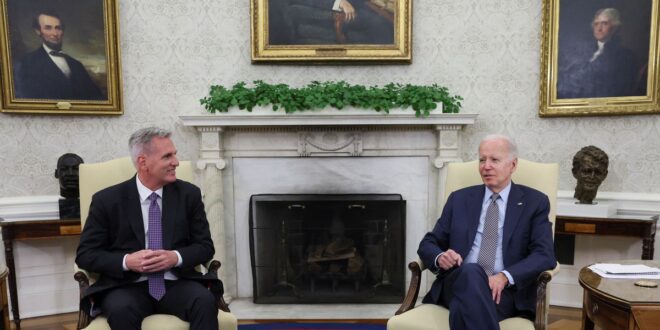President Joe Biden and top Republican Kevin McCarthy have reached a tentative deal to raise the federal government’s debt ceiling. The deal was announced without any celebration as negotiations have been tense. The deal will raise the debt limit for two years while capping spending over that time, clawing back unused COVID funds, speeding up the permitting process for some energy projects and including extra work requirements for food aid programs for poor Americans. The deal will avert an economically destabilizing default as long as it is passed before the Treasury Department runs short of money to cover all its obligations before June 5.
Negotiators have agreed to cap non-defense discretionary spending at 2023 levels for one year and increase it by 1% in 2025. Biden and McCarthy have to carefully thread the needle in finding a compromise that can clear the House and the Senate. Republicans have pushed for steep cuts to spending and other conditions while Democrats have pushed to increase taxes on the wealthy and companies to shrink the debt.
The long standoff on raising the debt ceiling has spooked financial markets, weighing on stocks and forcing the United States to pay record-high interest rates in some bond sales. A default would take a far heavier toll, economists say, likely pushing the nation into recession, shaking the world economy, and leading to a spike in unemployment.
The work to raise the debt ceiling is far from done. McCarthy has vowed to give House members 72 hours to read the legislation before bringing it to the floor for a vote. That will test whether enough moderate members support the compromises in the bill to overcome opposition from both hard-right Republicans and progressive Democrats. Then it will need to pass the Senate, where it will need at least nine Republican votes to succeed.
 Mind Uncharted Explore. Discover. Learn.
Mind Uncharted Explore. Discover. Learn.



